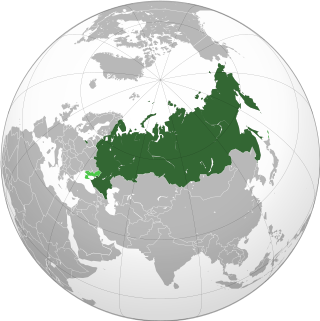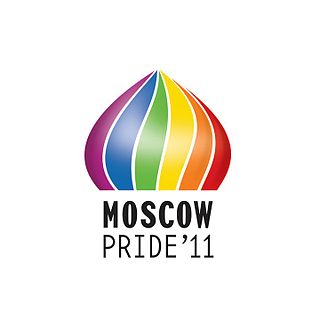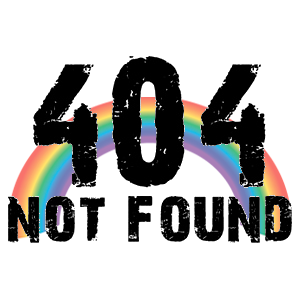Anti-LGBT rhetoric comprises themes, catchphrases, and slogans that have been used in order to demean lesbian, gay, bisexual, and transgender (LGBT) people. They range from the demeaning and the pejorative to expressions of hostility towards homosexuality which are based on religious, medical, or moral grounds. It is a form of hate speech, which is illegal in countries such as the Netherlands, Norway, and Sweden.

Peter Gary Tatchell is an Australian-born British human rights campaigner, best known for his work with LGBTQI+ social movements.
"Gay agenda" or "homosexual agenda" is a term used by sectors of the Christian religious right as a disparaging way to describe the advocacy of cultural acceptance and normalization of non-heterosexual sexual orientations and relationships. The term originated among social conservatives in the United States and has been adopted in nations with active anti-LGBT movements such as Hungary and Uganda.

Lesbian, gay, bisexual and transgender (LGBT) people in Ukraine face legal and social challenges not experienced by non-LGBT individuals; historically, the prevailing social and political attitudes have been intolerant of LGBT people, and strong evidence suggests this attitude remains in parts of the wider society. Since the fall of the Soviet Union and Ukraine's independence in 1991, the Ukrainian LGBT community has gradually become more visible and more organized politically, organizing several LGBT events in Kyiv, Odesa, Kharkiv, and Kryvyi Rih.

In the Russian Federation, lesbian, gay, bisexual, and transgender (LGBT) people face significant challenges not experienced by others. Although sexual activity between people of the same sex is legal, homosexuality is disapproved of by most of the population, pro-LGBT advocacy groups are deemed extremist and banned, and it is illegal for individuals to "promote homosexuality"; in addition, same-sex couples and households headed by same-sex couples are ineligible for the legal protections available to opposite-sex couples. Russia provides no anti-discrimination protections for LGBT people and does not have a designation for hate crimes based on sexual orientation and gender identity. Transgender people are not allowed to change their legal gender and all gender-affirming care is banned. There are currently no laws prohibiting discrimination based on gender identity or expression, and recent laws could be used to discriminate against transgender residents.

LGBT people in Azerbaijan face significant challenges not experienced by non-LGBT residents. Same-sex sexual activity has been legal in Azerbaijan since 1 September 2000. Nonetheless, discrimination on the basis of sexual orientation and gender identity are not banned in the country and same-sex marriage is not recognized.
The World Congress of Families (WCF) is a United States coalition that promotes Christian right values internationally. It opposes divorce, birth control, same-sex marriage, pornography, and abortion, while supporting a society built on "the voluntary union of a man and a woman in a lifelong covenant of marriage". WCF comprises organizations in several countries, and most of its member partners are strongly active campaigners against abortion rights and same-sex marriage. WCF was formed in 1997 and is active worldwide, regularly organizing conventions. Its opposition to gay marriage and abortion has attracted criticism.

Nikolay Alexandrovich Alexeyev is a Russian LGBT rights activist, lawyer and journalist.

Michael Lucas is a Russian-American-Israeli businessman and with his ex-husband, is the co-founder and CEO of Lucas Entertainment, Manhattan's largest gay-adult-film company.

Although life in modern Russia allows many more liberties for gay men and lesbians than it did before the fall of communism, unofficial discrimination and fear are still rampant. "It would be foolish to interpret some new freedoms as tolerance," said Igor Kon, a sociologist who is Russia's best-known expert on sexual practices, and author of The Sexual Revolution in Russia. Gay life in Russia is less open than in Western countries. With more quickly growing acceptance, major cities like Moscow and St Petersburg now have LGBT clubs and venues.

Scott Douglas Lively is an American activist, author, and attorney, who is the president of Abiding Truth Ministries, an anti-LGBT group based in Temecula, California. He was also a cofounder of Latvia-based group Watchmen on the Walls, state director of the California branch of the American Family Association, and a spokesman for the Oregon Citizens Alliance. He unsuccessfully attempted to be elected as the governor of Massachusetts in both 2014 and 2018.

Peter LaBarbera is an American social conservative activist and the president of the anti-gay organization Americans for Truth about Homosexuality (AFTAH).

The history of lesbian, gay, bisexual and transgender people (LGBT) in Russia and its historical antecedents has largely been influenced by the political leanings of its rulers. Medieval Catholic-Protestant Europe had the largest influence on Russian attitude towards homosexuality. Russian LGBT history was influenced by the ambivalent attitude of the Russian Orthodox religiosity regarding sexuality.

Vitaly Valentinovich Milonov is a Russian politician, deputy of the State Duma of the Russian Federation since 2016. A member of United Russia, he has served as a Member of the State Duma for Saint Petersburg South since 2016. As a legislator, he is known for his opposition to LGBT rights in Russia. From 2007 to 2016, he was a Member of the Legislative Assembly of Saint Petersburg.

Children-404 is a Russian LGBTI online community on Facebook and on the social networking site VK.
During the lead-up to the 2014 Winter Olympics, protests and campaigns arose surrounding the rights of lesbian, gay, bisexual, and transgender (LGBT) people in Russia.

The Russian federal law "for the Purpose of Protecting Children from Information Advocating a Denial of Traditional Family Values", also referred to in English-language media as Russia's gay propaganda law or anti-gay law, is a bill that was unanimously approved by the State Duma on 11 June 2013, then unanimously approved by the Federation Council on 27 June 2013 and was signed into law by President Vladimir Putin on 30 June 2013.

The Principle Six campaign, also Principle 6, or P6, was launched in January 2014 as an Olympic protests of Russian anti-gay laws in conjunction with the 2014 Winter Olympics being held in Sochi, Russia. Principle 6 refers to the sixth principle of the Olympic Charter that says any form of discrimination "is incompatible with belonging to the Olympic Movement."
Any form of discrimination with regard to a country or a person on grounds of race, religion, politics, gender or otherwise is incompatible with belonging to the Olympic Movement.
Mikhail "Misha" Tumasov (he/they) is a Russian LGBTQ activist and human rights defender. Tumasov founded the Avers LGBT movement in Samara in 2011 and is currently the network director for the Russian LGBT Network.
Gays for Putin! is a Russian LGBT group that supports Vladimir Putin, endorsing his 2018 presidential campaign. The tongue-in-cheek initiative began following a homophobic presidential campaign ad in early 2018.














